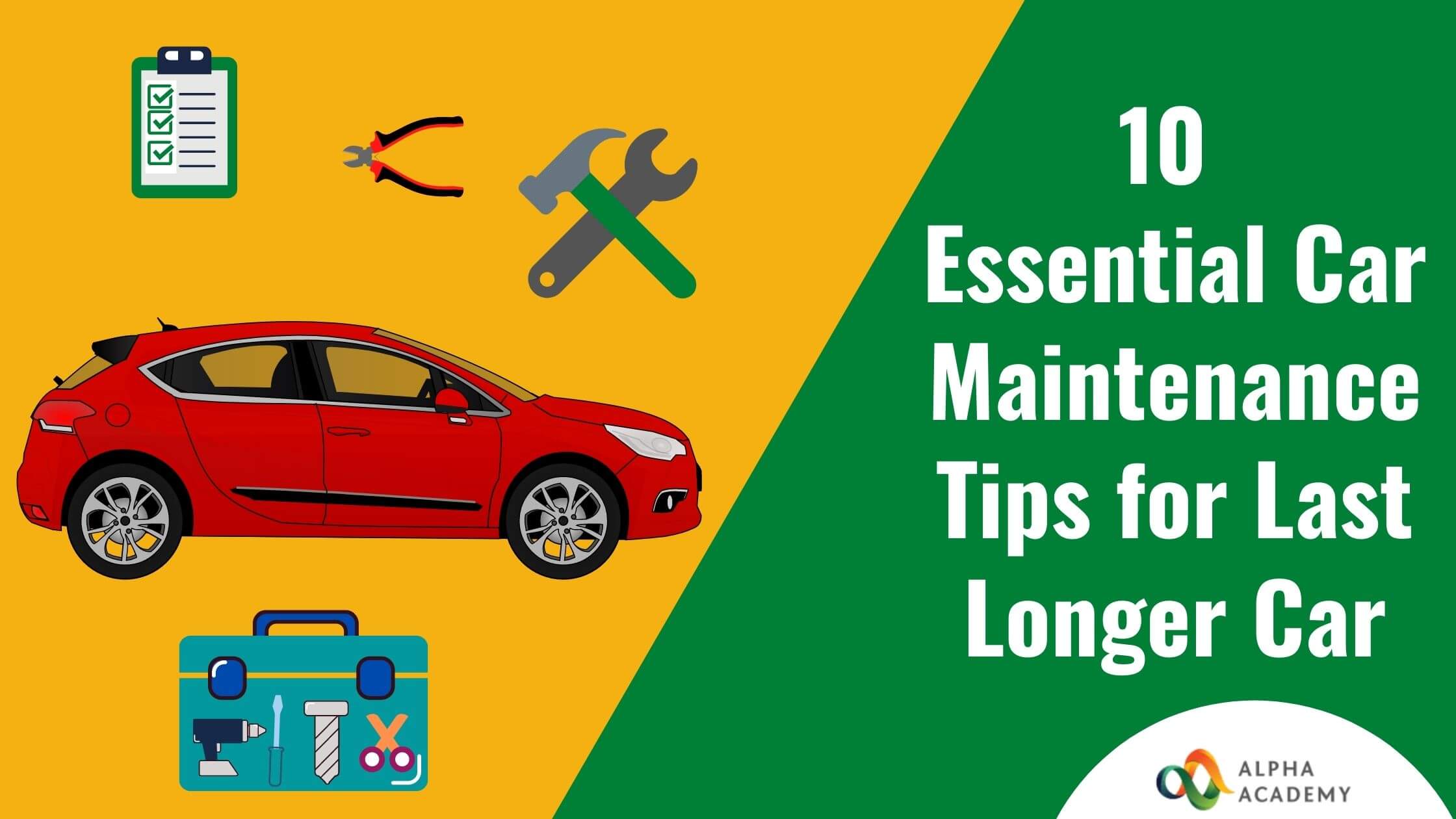Rise by Six: Your Daily Dose of Inspiration
Explore insights and stories that elevate your day.
Don’t Let Your Car be a Money Pit: Tips Inside
Stop wasting money on car repairs! Discover top tips to keep your vehicle running smoothly and save big. Dive in now!
Essential Maintenance Tips to Prevent Costly Car Repairs
Regular car maintenance is crucial to ensure your vehicle runs smoothly and to avoid costly car repairs down the line. Start with a thorough oil change every 5,000 to 7,500 miles, depending on your car's specifications. Additionally, check and replace air filters as needed, as clean filters improve fuel efficiency and engine performance. Another important task is to keep an eye on tire pressure and tread depth; underinflated or worn tires can lead to accidents and expensive replacements. Here’s a quick checklist for essential maintenance:
- Change oil and oil filter regularly
- Inspect air filters
- Check tire pressure and tread
Another key area to focus on is the braking system. Regularly inspecting your brakes can prevent dangerous situations and the need for expensive brake repairs. Look for signs like squeaking or grinding sounds and check the brake fluid levels. Additionally, paying attention to your car’s cooling system can extend the life of your engine. Always make sure the coolant is at the right level and change it as recommended by your manufacturer. By being proactive with these essential maintenance tips, you can save yourself from unforeseen repair costs and keep your vehicle in optimal condition.
- Inspect braking system regularly
- Monitor coolant levels
- Follow manufacturer’s maintenance schedule

Top Signs Your Car is Becoming a Money Pit and How to Avoid It
Owning a car comes with its responsibilities, but when that car starts turning into a money pit, it can quickly become a burden. One of the top signs is frequent unexpected repairs. If you're finding yourself visiting the mechanic more often than usual, especially for major issues such as transmission problems or engine failures, it's a clear indication that your vehicle is draining your finances. Additionally, keep an eye out for rising fuel costs. If you notice that your car is guzzling gas more than it used to, it might be time to assess whether repairs are worth it or if it's more cost-effective to invest in a new vehicle.
Another telling sign is when your maintenance costs exceed the value of the car itself. Consider keeping a record of all expenses and compare this to the current market value of your vehicle. If your costs are climbing rapidly, you might be teetering on the edge of a money pit. To avoid falling into this trap, practice regular maintenance and stay proactive about minor issues before they escalate. This includes routine oil changes, brake checks, and tire rotations. Lastly, consider whether you are still in love with your car or if it's time to say goodbye and invest in something newer and more reliable.
How to Budget Effectively for Car Expenses and Maintenance
Budgeting effectively for car expenses and maintenance is essential for any vehicle owner. To begin with, it's important to categorize your expenses into fixed and variable costs. Fixed costs typically include monthly payments for auto loans or leases, insurance premiums, and registration fees. On the other hand, variable costs encompass fuel, routine maintenance, repairs, and unexpected expenses. By tracking these costs monthly, you can gain a clearer understanding of your financial obligations and make informed decisions about your budget. A great way to manage this is by creating a detailed monthly budget plan that allocates specific amounts for each category, ensuring you are prepared for both expected and unexpected expenses.
In addition to categorizing expenses, consider implementing a sinking fund for car maintenance. This means setting aside a small amount of money each month to cover future maintenance costs, such as oil changes, tire replacements, and brake services. To make budgeting even more effective, utilize the following steps:
- Estimate your annual maintenance costs based on your car's make and model.
- Divide that total by twelve to determine how much you should save each month.
- Regularly review your budget and adjust your savings as necessary.